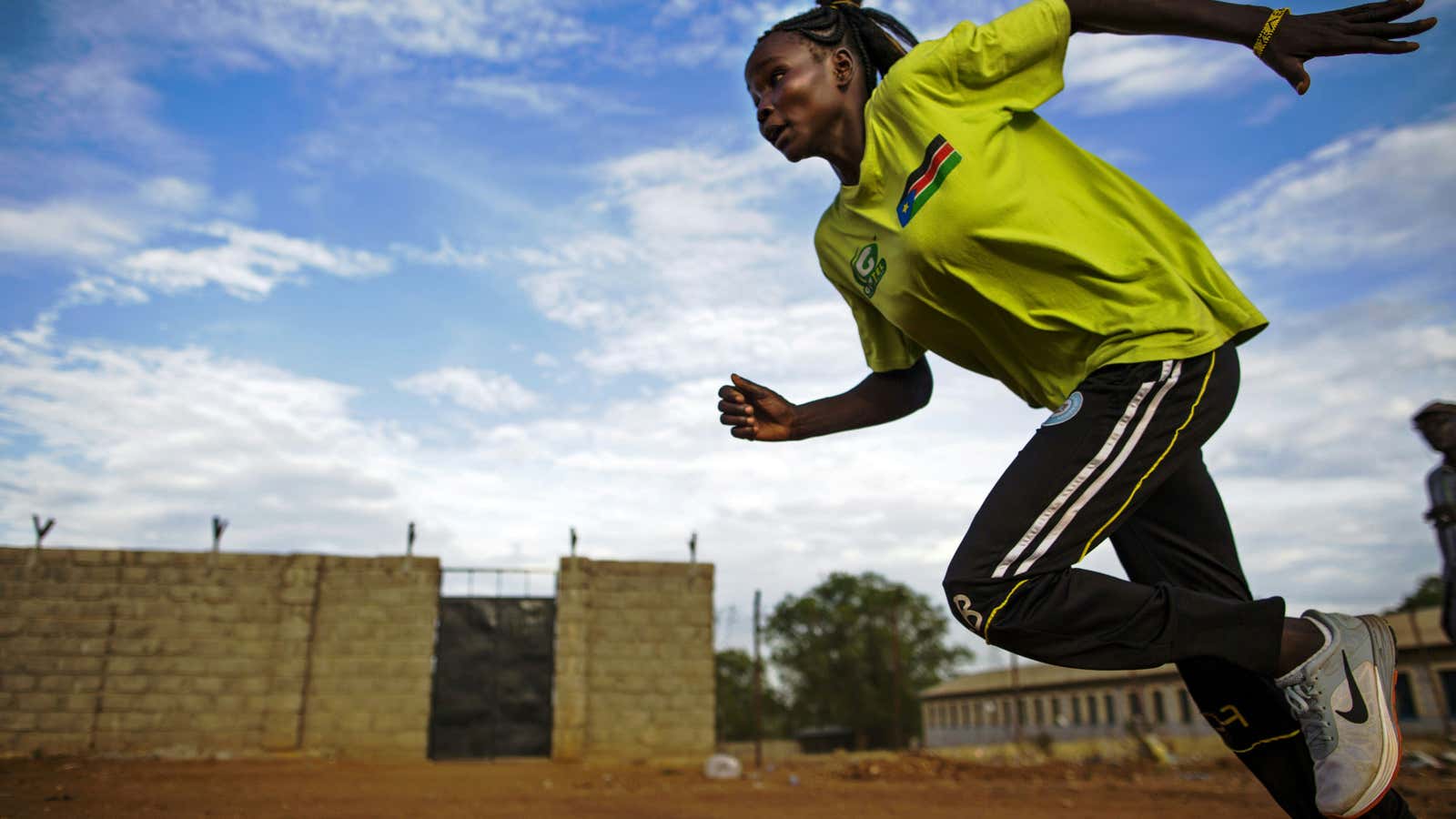Fresh violence has engulfed South Sudan on the eve of the fifth anniversary of its independence, leading to the death of 300 people, the displacement of tens of thousands and sparking fears that the country is on the verge of another civil war. Yet in the midst of the conflict, there is one bright spot for the fledgling state as it prepares to send its first delegation to the Olympics.
South Sudan became independent from Sudan in 2011 following a referendum in which 99 percent of the population voted for secession. The country’s breakaway inspired hope that the conflict of the preceding decades, which saw more than 1.5 million people killed, was finally over.
The International Olympic Committee recognized South Sudan as a member nation in August 2015, and the country of over 12 million people will be represented by at least two people in the upcoming Rio 2016 Summer Olympics. Nineteen-year-old Margret Rumat Rumar Hassan will compete in the 200 and 400-meter races, and 16-year-old Santino Kenyi will compete in the 1,500 meter race, Tong Chor Malek Deran of South Sudan’s Olympic committee confirmed Wednesday. The addition of Guor Mading Maker, a US-based athlete who ran as an independent athlete in the London 2012 Olympic games, was being finalized, Tong says.
Hassan’s story was recently highlighted in a touching advert for Samsung. Originally from Wau city in northwestern South Sudan, the 19-year-old has overcome seemingly insurmountable challenges to realize her dream of running in the Olympics, including being displaced with her family during the war with Sudan. Her schooling was delayed as a result of the conflict, and she is still finishing her primary education. She hopes to one day become a teacher.
Hassan was inspired to start running after a friend convinced her to take part in a local competition, according to an Olympic Games profile of the runner. Despite lacking training, equipment, and even consistent meals, she was able to make it to the Youth Olympic Games in Nanjing, China in 2014 as an independent athlete. “Sometimes I wake up and I have breakfast and other days I don’t have breakfast,” Margret said in a YouTube video posted on the Olympics page last August. “But I have the courage and I think I will get there.”
In the Samsung ad, Hassan is shown mentally preparing for the Games, while her countrymen chant her name in support in the background.
The advert showcases the national unity the Olympic Games hopes to inspire. That’s proved challenging for South Sudan, where more than 2.2 million have been displaced internally or are seeking refuge in neighboring states as a result of violence between rival ethnic factions loyal to president Salva Kiir, and former vice president Riek Machar.
Despite the current conflict, “when it comes to the sports, we see ourselves as one family,” Tong tells Quartz. “We are happy to go as South Sudanese, all our tribes, all our ethnic groups.”
The team represents an important symbol of unity to a young generation who have been been affected by the nation’s problems, says Gabriel Eljack, a freelance journalist based in Juba. “Their participation in the Olympic Games means that South Sudan can make it despite the enormous challenges. They have the support of everybody.”
Five South Sudanese refugees living in Kenya will also compete in Rio as part of the first ever Refugee Olympic team.
